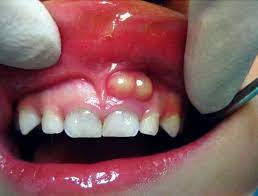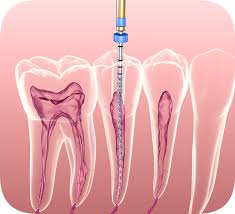Root canals are a common dental procedure that is performed to treat the pulp or nerve tissue inside a tooth. The pulp can become infected or inflamed due to decay, trauma, or deep cavities. Without proper treatment, an infected or inflamed pulp can cause severe pain and can even lead to tooth loss. If you are experiencing dental pain, sensitivity, or discomfort, it may be time to consider getting a root canal. In this article, we will discuss the signs and symptoms that indicate the need for a root canal.
- Persistent Pain
One of the most common signs that you may need a root canal is persistent pain. If you have pain in your tooth, especially when you bite down or apply pressure, this could be a sign that the pulp inside your tooth is inflamed or infected. The pain may be mild or severe, but it is typically constant and may be accompanied by swelling.
The pain associated with an infected or inflamed pulp can be severe and can cause difficulty in eating, drinking, and sleeping. This pain may also radiate to other areas of the face or jaw. If you are experiencing persistent dental pain, it is important to schedule an appointment with your dentist as soon as possible. Your dentist can perform a thorough examination and determine if a root canal is necessary.
- Sensitivity to Hot and Cold
Another common symptom that indicates the need for a root canal is sensitivity to hot and cold. If you experience sharp or shooting pain when you consume hot or cold beverages or foods, this could be a sign that the pulp inside your tooth is damaged or infected.
Sensitivity to hot and cold is a common dental problem that can be caused by a variety of factors, including gum recession, tooth decay, or a damaged filling. However, if the sensitivity is severe and persistent, it could be a sign that a root canal is needed. The sensitivity may also be accompanied by pain or discomfort when brushing or flossing the affected tooth.

- Swollen or Tender Gums
In some cases, a damaged or infected tooth can cause swelling or tenderness in the gums surrounding the affected tooth. This may be accompanied by redness or soreness, and you may notice a small bump or pimple-like lesion on the gums.
Swollen or tender gums can be a sign of a dental abscess, which is a pocket of pus that forms in the gum tissue or bone surrounding the tooth. An abscess is a serious dental condition that requires prompt treatment. If you notice any swelling or tenderness in your gums, it is important to schedule an appointment with your dentist right away.
- Discolouration
If your tooth has become discoloured, this may be a sign that the pulp inside the tooth is damaged or infected. The tooth may appear grey, yellow, or brown, and the discolouration may be localized to one area of the tooth.
Discolouration of the tooth can be caused by a variety of factors, including genetics, ageing, and lifestyle habits such as smoking or consuming staining beverages like coffee or tea. However, if the discolouration is sudden or localized to one area of the tooth, it could be a sign that a root canal is necessary. Your dentist can perform a thorough examination to determine the cause of the discolouration and recommend the appropriate treatment.
- Bad Taste or Smell
If you notice a bad taste or smell in your mouth, this could be a sign that the pulp inside your tooth is infected. Bacteria can accumulate inside the tooth, causing an unpleasant taste or odour.
Bad breath or a bad taste in the mouth can be caused by a variety of factors, including poor oral hygiene, gum disease, or sinus problems. However, if the bad taste or smell is localized to one area of the mouth and is persistent
6. Swelling and Tenderness
If you are experiencing swelling and tenderness around a tooth, it may be a sign of infection. Infections can occur when the pulp inside a tooth is damaged or infected, and can cause swelling and tenderness in the surrounding area. If you are experiencing swelling and tenderness, it is important to see a dentist as soon as possible to prevent the infection from spreading.
- Gum Abscess:
A gum abscess is a pocket of pus that forms in the gums around a tooth. It can be caused by an infection in the tooth and can be a sign that a root canal is necessary. If you are experiencing a gum abscess, it is important to see a dentist as soon as possible to prevent the infection from spreading and to receive appropriate treatment.

If you are experiencing any of these signs and symptoms, it is important to see a dentist as soon as possible to determine the cause of the problem and to receive appropriate treatment. Delaying treatment can lead to further complications and may even result in the loss of the tooth.
During a root canal procedure, the dentist will first numb the area around the affected tooth. They will then make a small hole in the top of the tooth to access the pulp inside. The damaged or infected pulp will be removed, and the root canal will be cleaned and sealed to prevent further infection. In some cases, a crown or other restoration may be necessary to restore the tooth to its full function.
In conclusion, a root canal may be necessary if you are experiencing persistent pain, sensitivity to hot and cold temperatures, discolouration, swelling and tenderness, or a gum abscess. It is important to see a dentist as soon as possible if you are experiencing any of these symptoms to prevent further complications and to receive appropriate treatment. With proper care and treatment, a root canal can help save a damaged or infected tooth and restore it to its full function.
For residents of Nairobi and its environs, there is just but one place to get the best dental services. This is the Nairobi Sterling Dental clinic, in Nairobi. Here, we have well-trained qualified, certified and experienced personnel at your service. Our experts are the best of the best in the field and offer nothing but quality services. Pay us a visit at the Park Suite Building in Nairobi, Kenya. Moreover, you can also contact us to book an appointment with our specialists or make enquiries about root canal treatment or any other dental service.

